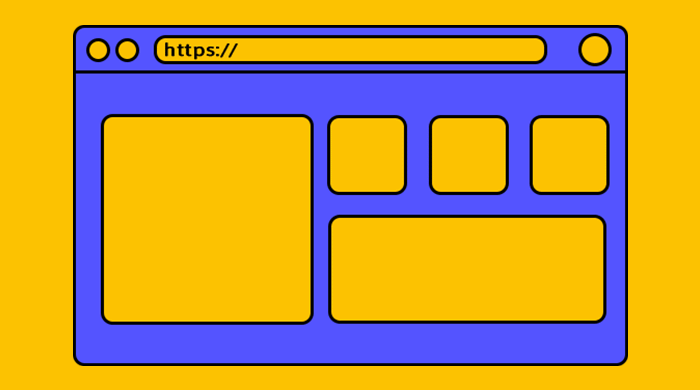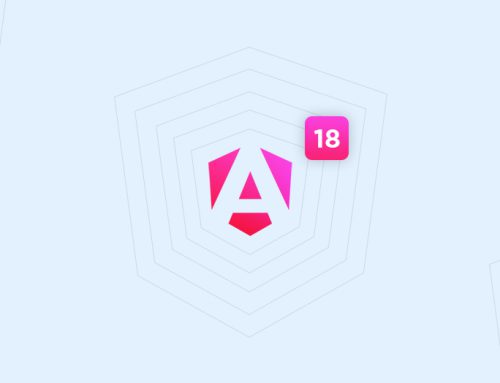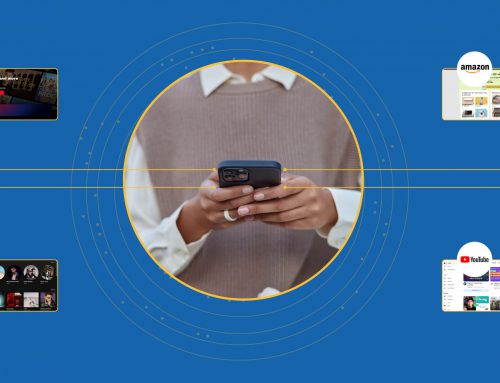Table of Contents
In 2022, smartphone retail e-commerce sales in the United States are projected to exceed 432 billion USD, up from 148 billion USD in 2018.- Statista
The major part of eCommerce sales comes from mobile devices. It is expected that in 2021, mobile commerce will account for 73% of total eCommerce sales across the globe. In light of this fact, eCommerce companies are investing in mobile apps and websites. Mobile apps have ruled the market since it has been introduced, which continues to be the choice of the user to some extent. In fact, according to Statista, in 2020, 218 Billion apps were downloaded across the globe.
However, as the technology advances, user preferences also change likewise, looking for something better, which is exactly the case with mobile applications as well. Though a mobile application has numerous advantages for both the companies and the users, like better engagement, availability, and higher retention, the challenges associated with it cannot be overlooked, which gave rise to the concept of PWA.
Challenges Faced with the Mobile Applications
50.6 % of users uninstall the application if it takes an excess of room on the gadget’s memory. Not only this, there are various other variables that constrain the users to abandon the applications, such as-
- The battery drains faster.
- Higher load time.
- Consumes too much internet data.
- Security/privacy issues due to frequent updates and ads.
- Annoying push notifications.
- Complicated onboarding process.
- Device support
- App store dependency
App abandonment can have a huge impact on the eCommerce business, drowning your business in losses. If you do not want to let this happen to your business, in fact, make the most out of mobile commerce, offer a solution to the users that delivers an excellent user experience. For this, you can provide a blend of both mobile applications and websites to the user, which gives you both the convenience of mobile apps and the security, cross-device usage, and flexibility of the website, i.e. Progressive Web Apps(PWA).
What is Progressive Web Applications (PWA)?
PWA is a web application that delivers the rich experience of the native mobile application on a website. Just like the mobile applications, Progressive Web Apps can also be added to the home screen of the mobile devices, work offline as it saves the sessions, and sends push notifications, without worrying over the challenges.
For further information on Progressive Web Apps(PWA), Read more:
As digital marketing has become ‘new normal’ for the world, eCommerce has got the biggest opportunity to grow as never before. The eCommerce Web Application Development Companies are leaving no stone unturned to reap the full advantage of this situation, creating tough competition in the market. The one who will serve the users better and solve their problems faster and easier will rule the market. And PWA, packed with some outstanding features, is the perfect recipe for this. However, before discussing the advantages of PWA for the eCommerce business, check out some of the most popular eCommerce PWAs in the market-
4 Most Popular PWAs for eCommerce Web Application Development
-
1. Flipkart PWA
Flipkart is one of the most popular eCommerce stores which started with selling books, gradually expanded its dimensions to other products as well. In 2015, Flipkart brought a change to its business strategy, shutting down its website and shifting completely to the mobile application. This decision could not prove feasible and profitable, failing to provide a satisfactory user experience. Considering this fact, Flipkart decided to adopt the mobile web strategy, and hence it introduced its PWA, Flipkart lite, which was more faster and efficient.
Major achievements after switching to PWA-
- Time spent on the Flipkart lite increased to 3.5 minutes from 70 seconds, as in the case of the mobile apps.
- The re-engagement rate increased by 40%.
- The Add to Homescreen option resulted in a 70% greater conversion rate.
- The PWA consumed three times less data than that of the mobile app.
-
2. AliExpress PWA
AliExpress, an online retail service launched in 2010, was introduced by Alibaba Group based in China. AliExpress is an online B2C platform that enables retailers/ businesses to sell their products to international consumers. Having a customer base of around 150 million, AliExpress has successfully made its name in the market which needs not be introduced anymore.
Earlier, AliExpress was running on the mobile application, however, after facing the challenges like lower conversion rate, poor adaptability with the device, and requirement of higher internet connection, it decided to switch to PWA. This came out as a great decision for the company, bringing in some considerable difference to the user experience, as well as to the business.
Major achievements after switching to PWA-
- The conversion rate of the users increased to 104%.
- Users spent more time per session i.e. approximately 74% higher than that in the case of the mobile apps.
- The frequency of the pages visited by a user per session nearly doubled.
-
3. Lancôme PWA
Lancôme is a French-based brand, owned by LÓreal, that distributes luxury perfumes, skincare products, and cosmetics internationally. In 2016, where on one hand, Lancôme observed a relative increase in mobile traffic in comparison to the desktop, a higher conversion rate of 38% was coming through the website which was more than the mobile which only offered 15%. Hence, Lancôme decided to launch a PWA that has the power of both.
Major achievements after switching to PWA-
- The conversion rate increased by 17%.
- Page interaction time decreased by 84%.
- Mobile sessions increased by 51%.
- Bounce rates decreased by 15%.
- Push Notifications conversion rate increased by 12%.
-
4. OLX
Online eXchange(OLX), a Dutch-based extremely popular online marketplace founded in 2006, is a platform that allows users to sell and buy products online. Being operated in 45 countries, it provides marketers a vibrant online marketplace as well as a broader reach.
In 2016, OLX observed that out of the traffic coming from the mobile devices including both the app and the website, a major part of the conversions was yielded from the app. Due to the slow loading of the ads, the visitors coming on the website couldn’t be converted. Hence, to provide an app-like experience that loads fast and is immersive, they decided to switch to Progressive Web App.
Major achievements after switching to PWA-
- Page interaction time decreased by 23%
- Bounce rate lowered by 80%
- Click through rate of the Ads increased by 146%
- Re-engagement rates increased by 250%
How eCommerce Web Applications can benefit your business?
-
1. Faster development and Cost-effective
PWAs, unlike mobile apps, need not be built from the scratch, thereby requiring lesser time than that for mobile app development. Having just to redirect the users to the website, it only needs to be built in the HTML/CSS and Javascript.
Hence, because of the foundation already laid in the face of the website, a lot of time, effort, and cost are saved to develop the PWA. Also, you need not develop a separate application for different categories of users(iOS, Android, or Windows); one PWA works for all.
2. Enhances Your Visibility
There are more than 1 million apps on the app store, which increases the probability of your app getting lost among them and also your customer moving to your competitor. There are no such risks and complications with the PWAs, as it quickly and directly takes your customer to your website, increasing your visibility and leaving no scope for diversions. Not only this, having the URL, the PWA can be optimized for the search engines, increasing your visibility on the search engines as well.
-
3. Frees you from Paying Third-Party App Shop Subscriptions Charges
Who wants to pay the commission to the third-party app stores? But, if you want to launch your app and get it reached to the users, you do not have any option, but to place it on the third-party app shops. And as the apps will be residing in the OS program of the retailer, you have to pay subscription charges.
Progressive web apps liberate you from this pain. Being completely web-based you need not depend upon any third-party shops to distribute your web app, instead, the user can access it through any web browser on their device.
-
4. Expands your Brand Reach
The mobile apps restrict you to the type of devices and operating systems being used. For instance, if you launch an android application for your business, it will only target Android users, and so is the case with the other devices/OS. PWA, on the flip side, does not come with any such restrictions. Having the cross-browser capabilities as well as being independent of the type of OS, PWA expands your brand reach.
-
5. Increases your Conversion Rate
No one makes a purchase every day. So, downloading an app unnecessarily storing it forever, and wasting their storage space, doesn’t make sense to the users. This tends to compel the users to uninstall the apps now and then, impacting the conversion rate.
Having features like lightweight, faster-loading speed, offline operability, security, and incomparable flexibility, the user needs not worry about the above factors with PWA. Hence, they prefer PWA over the apps to make a purchase, thereby increasing the conversion rate.
Are you Ready to Harness the Power of PWA in your eCommerce Business?
PWA is not just a passing trend, it’s here to stay!
The adoption of the PWA has offered considerable profits to the business. Not only in the eCommerce sector, but PWA is also gaining popularity in various other sectors like social media, banks, insurance, as well as news and media. PWA holds a lot of potential for the business in the coming future. Hence, underestimating it won’t be a great approach for you, instead, prepare yourself for the unfolding customer needs.
Whether you have a large-scale or small-scale business, PWA is for you. Requiring the least amount of investment and faster to reach the market, anyone regardless of the type of business can develop their PWA. So, wait no more, reach out to our Web App development team and create a unique and outstanding user experience with our Custom Web Application Development Services.


























Leave A Comment